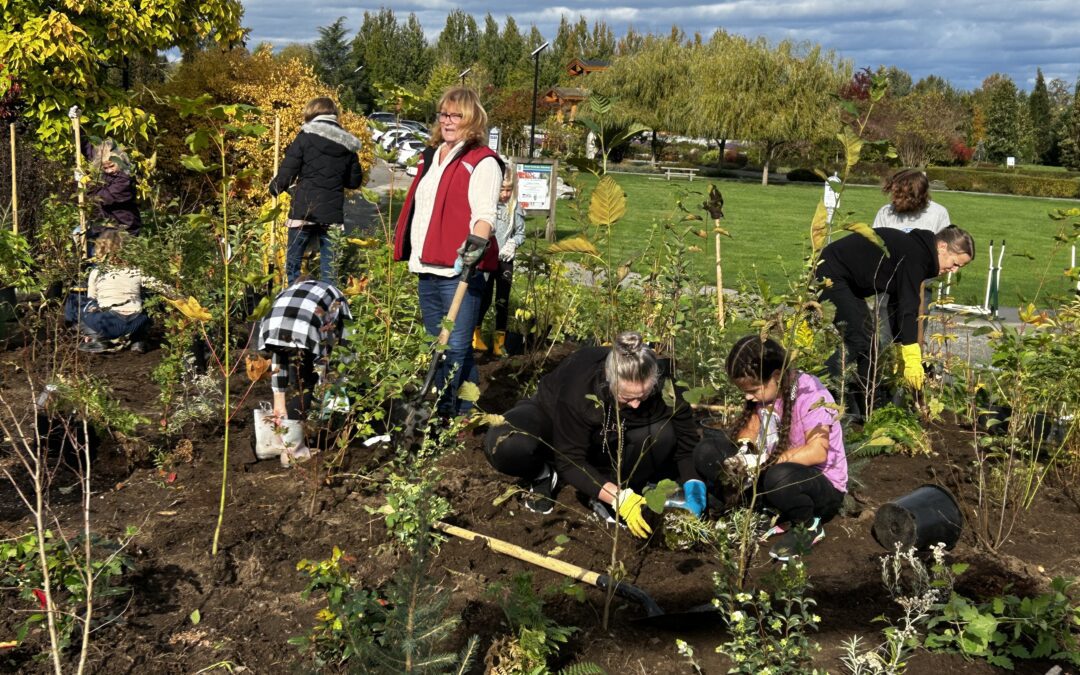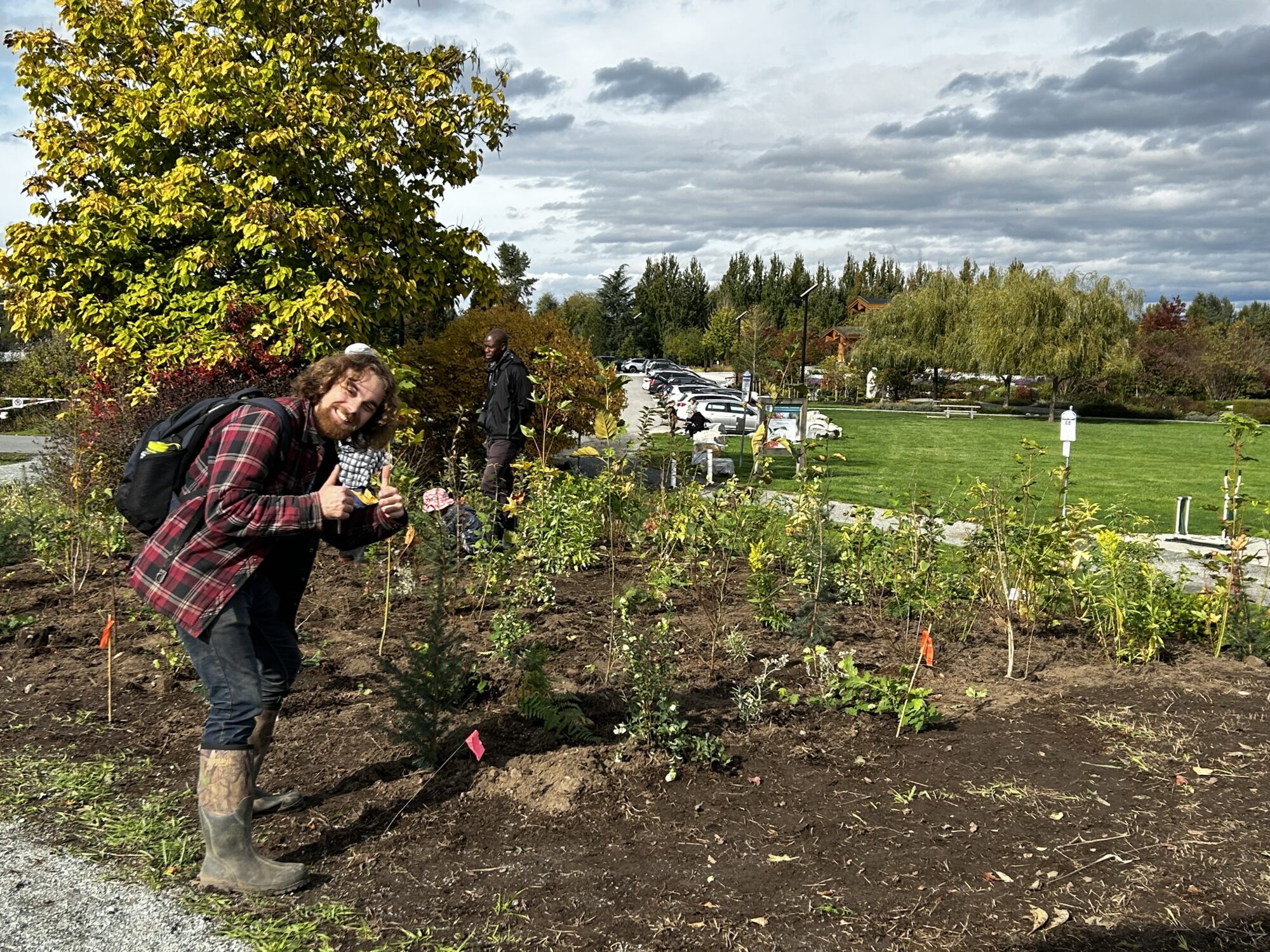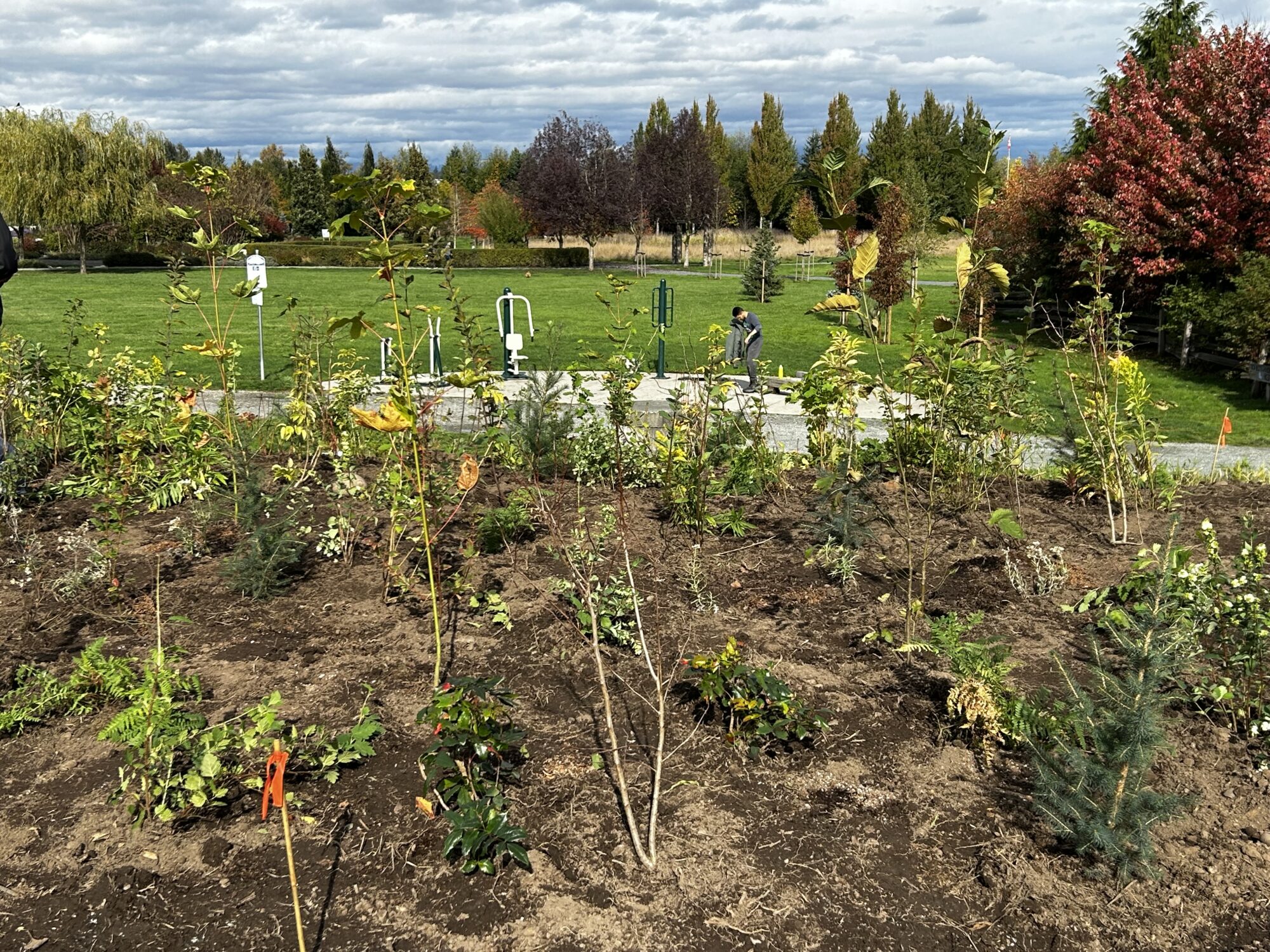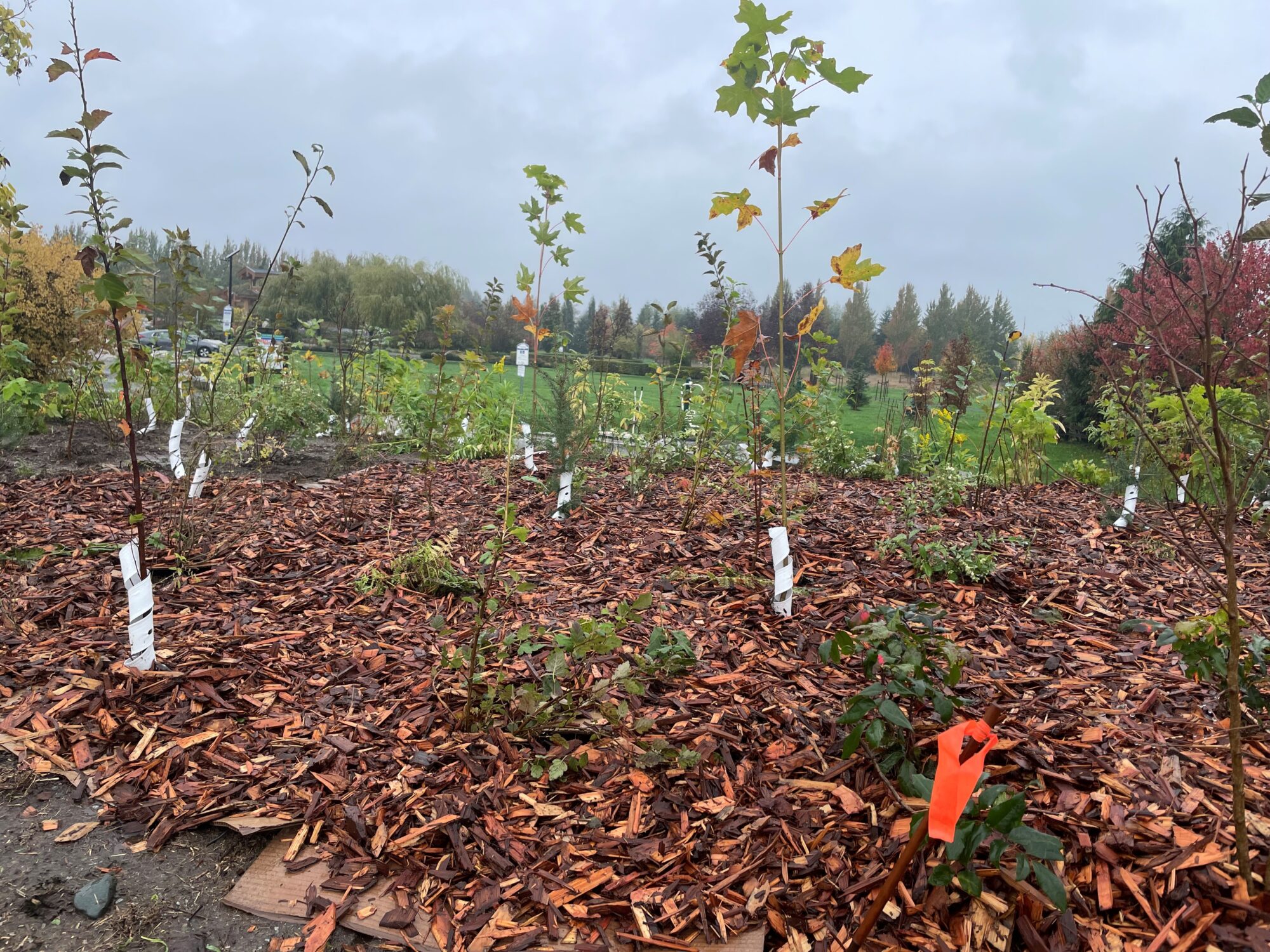The Project
Langley Environmental Partners Society (LEPS) planted a 100m2 mini forest at the Derek Doubleday Arboretum in the Township of Langley, BC. The site was on a berm between a sustainable horticulture park and a major road. Constructed by the Township of Langley during the park’s development, the berm was plagued by poor soil quality, thistles, and invasive reed canary grass.
Using a rototiller, the group loosened the compacted soil, creating the foundation for the upcoming planting. However, true magic took place under the surface. Volunteers dug by hand, down to a depth of 30 cm and deposited a combination of corn husks and horse manure to improve the soil. This was followed by an excavator which integrated the mixture to a depth of one meter and re-filled the hole.
The planting day was efficient, due to the hard work done in advance by LEPS staff who organized and marked out the plant delivery from the local nursery. After a quick planting demonstration, over 50 volunteers of all ages and backgrounds worked together to put a variety of native plants, including 320 trees, into the ground in under two hours!
Lessons Learned
The availability of machinery meant that much of the soil-amendment work had to be done by hand, which was extremely time-consuming. This was addressed by hosting volunteer work parties for enthusiastic volunteers, who completed the site prep the old-fashioned way.
The Miyawaki method of planting was new to the Township of Langley Parks Department, who initially had concerns about planting so many trees in a small area. Some minor adjustments to the proposed plant list meant the project was approved with no issues.
Final Thoughts
Participants enjoyed the day, and expressed their interest in returning to the site to continue to watch it develop. The newly created mini forest is located adjacent to a developing food forest and community orchard, and will serve as a demonstration hub of collaborative community projects. The project was developed by the Township of Langley Parks staff and LEPS staff, alongside volunteer members of local environmental stewardship groups and university students. On planting day, volunteers included Urban Indigenous and Metis youth, BIPOC participants, as well as newcomers from Ukraine. These new Canadians shared with LEPS that planting trees in the fall is a tradition in Ukraine and that, prior to the conflict, gathering with loved ones to plant trees in parks once was a common event. They were grateful to have an opportunity to continue this practice in Canada.
“This project helped us to increase our reach and attracted new volunteers to our organization, in part attributed to reaching out to local community service organizations to advertise local opportunities to participate in environmental projects.” – Nichole Marples, Executive Director, Langley Environmental Partners Society
This project was supported by Green Communities Canada’s Living Cities Canada Fund.
To find plants that are adapted to grow in your region, or plant nurseries that sell native plants, visit the Network of Nature website.




The soil amendment done by hand in Langley was fascinating! That mini-forest will be rich and beautiful as it unfolds. If anyone wants to plant a mini-forest Miyawaki style, from a tiny pocket forest in a corner of a yard to a large one, please explore the Kingston website: LittleForests.org. They explain simple ways to prep soil ( save those leaves each fall), and suggest a variety of native canopy trees, understory trees, and shrubs to create a strong, diverse, stunning mini forest for your landscape, wet or dry, etc. The website is useful across Canada, though plants will vary across regions.